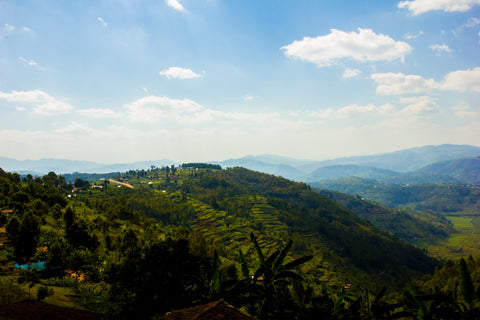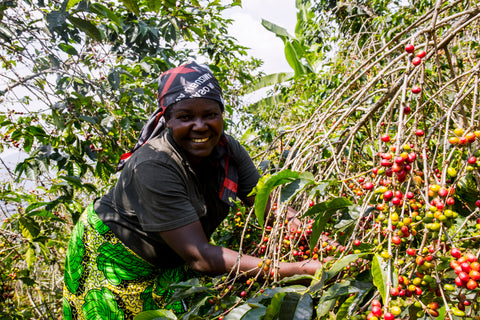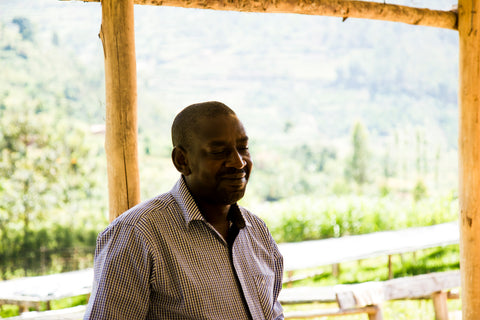Free U.S. Shipping on Orders Over $40
-
Coffee
-
Merch
-
About Us
- Subscriptions
-
Wholesale
- Education
Free U.S. Shipping on Orders Over $40
March 27, 2018
Rwanda is a beautiful country. Colloquially referred to as land of a thousand hills, it lives up to its name. Driving out of Kigali you immediately start climbing into a intensely lush mountain landscape. A very small country, nearly all hillsides are full of homes tucked into what could only be described as huge gardens. Each persons’ medium sized plot of land is divided up into countless smaller plots of cabbage, carrots, plantains, palm, or hundreds of other fruits and vegetables. Entering different coffee growing regions here was unique, unlike any other coffee region in any other country in the world. Usually you arrive in a coffee region and you are surrounded by 90% coffee with a few patches of sugar cane or palm. Here in Rwanda, the lush mega-mini gardens continue with the exception of the appearance of patches of coffee within the green landscape. (The only crop which appears to dominate large swaths of land is tea.) It was in one such area that we visited Tumba.

Our words to live by when sourcing are, “Good coffee comes from good people.” This was so true with Vincent (Venustre) Mugraneza. He owns and operates Tumba washing station in Rulindo district, Rwanda. We visited him for the first time this last year, and learned that he purchased this washing station a few years ago with the goal of improving his community. As a school teacher in the nearby town he saw that nearly everyone around this area grows at least a small amount of coffee. His goal being to create economic and social opportunity, he decided coffee was the best platform to impact the largest amount of people.

Vincent is a pragmatic businessman, and we related immediately with his point of view that doing good and doing good business are in no way mutually exclusive. He has an incentive driven business with multiple tiers of payment depending on the quality of cherries delivered, the price he is able to get from buyers, and the amount of time farmers work with him. One of the keys to creating a sustainable coffee purchasing model is setting up a system which encourages producers to develop a sense of constant improvement. Often we see programs fail when either higher prices are paid without correlating them to quality, or low prices continue but roasters “reinvest” later in a charity type model. Both of these create an unsustainable model in which good growing practices are not directly linked to rewards.

Tumba is the type of model which works. It doesn’t ask for charity or artificial prices, rather gives producers the tools they need to be self sufficient and rewards good results with good prices. Vincent has a program in which he rewards better quality not only with price increases, but subsidies for equipment and supplies, health care for families, and profit sharing in the form of a dividend. As you may expect, his coffee was one of the top lots we tried in the entire time we were in Rwanda. Proof again that good coffee comes from good people.
May 10, 2024
Explore the visionary world of Jamison Savage, a former financier turned coffee pioneer, whose dedication to excellence and innovation has redefined specialty coffee. From the lush jungles of Panama, Jamison brings forth the Echo Washed Carbonic Maceration Cascara Infused Geisha—a coffee that defies convention with its unique flavors of Cabernet Grape, Lychee, and Honeysuckle. Join us on a journey where tradition meets innovation, and each sip unveils a new realm of possibilities in the world of coffee.
Sign up to get the latest on sales, new releases and more…
